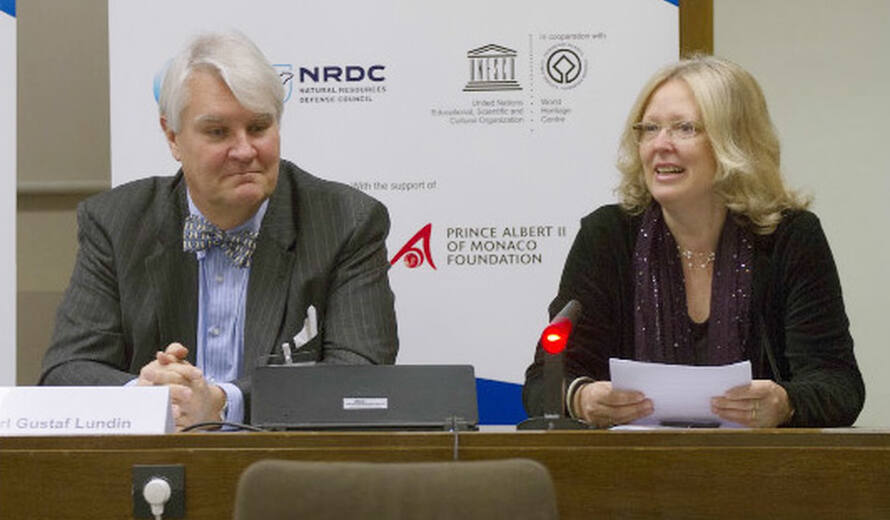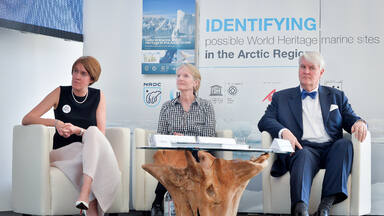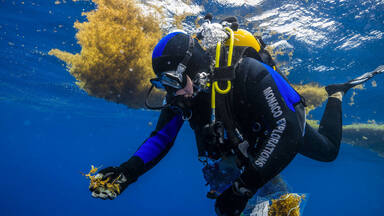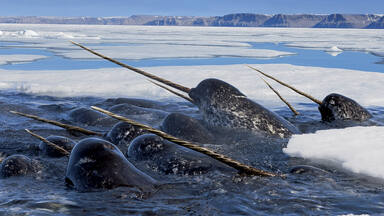Marine scientists gather in Paris to explore World Heritage potential in the Arctic
Marine science experts from around the world gathered at UNESCO’s Headquarters in a two-day working meeting to explore possible new marine World Heritage sites in the Arctic. Experts discussed unique and exceptional Arctic features that could potentially merit inscription on the UNESCO World Heritage list for their nature conservation values.
The Arctic is home to geological features and animals found nowhere else in the world. It is also ground zero for climate change, warming at twice the rate of the rest of the world. As sea ice retreats and the area becomes increasingly accessible to shipping and oil and gas development, the need for conservation of the area’s Outstanding Universal Value grows. At present, there are just two natural World Heritage sites in the region: Ilulissat Icefjord and Natural System of Wrangel Island Reserve. Earlier work by the World Heritage Centre and International Union for the Conservation of Nature (IUCN) determined that the Arctic region is underrepresented on UNESCO’s World Heritage List.
Participants debated the Arctic regions’ most unique natural features that are currently underrepresented on the World Heritage List, including distinctive geological processes, iconic species and high densities of endemic biodiversity found nowhere else. They also studied potential new sites that could meet the World Heritage criteria and compared them with sites that are currently listed on the tentative World Heritage List.
A key conclusion of the meeting centered on the intimate interaction between local communities, traditional cultures and the Arctic’s natural environment and agreed that the Outstanding Universal Value of the Arctic region should be considered from both its cultural and natural perspectives.
This week’s scientific meeting was part of an innovative multi-year project led by IUCN in partnership with the Natural Resources Defense Council (NRDC) and the World Heritage Centre’s Marine Programme. It is made possible through the generous support of the Prince Albert II of Monaco Foundation and WWF Canada. The results are expected to be launched at the IUCN World Conservation Congress in Hawaii, September 2016.

Marine scientists gather in Paris to explore World Heritage potential in the Arctic





